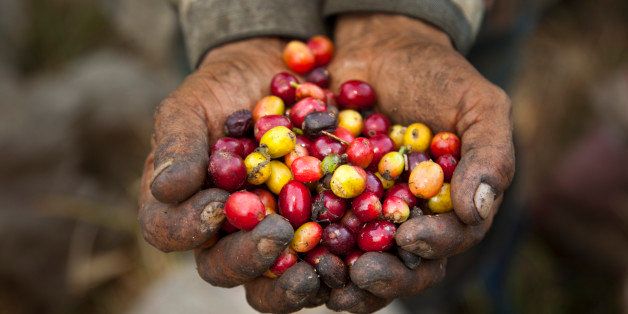Coffee, the SDG Agenda 2030, and Gender Equality
Situation:
We are facing global challenges currently. From high carbon emissions to little improvements in the escaping of vicious cycles of poverty, there is high demand to act upon the current issues. Coffee is a highly consummated and incredibly unequal product. Moreover, climate change is causing for a coffee crisis, which can lead to the disappearance of the beverage completely. Around 125 million people worldwide are dependent on the production of coffee to sustain their livelihoods (Fairtrade Foundation 2021). Hence, a sustainable approach to the production of coffee is necessary for the survival of the beverage, the people, and the planet. Here, the Sustainable Development Goal Agenda 2030 comes into play, which globally tries to change the world for a better and more sustainable tomorrow.
Reality:
There are many coffee producers around the world. However, there is only a small part which is produced in terms of Fair Trade. According to the Oxford Dictionary, Fair Trade is “… trade between companies in developed countries and producers in developing countries in which fair prices are paid to producers.” (Oxford Languages 2021). Yet, in many generic value chains, which function upon the notions of fair trade, value does not trickle down to the ones who need it most. This is mostly because value chains have many actors in them, and producers are not able to trace back the origin of the product. Value chains are often divided into labor intensive activities and value-added activities. In generic value chains, labor intensive activities are done at low price in country of origin, e.g. all countries present in the coffee belt. Value-added activities are done in country of consumption, e.g. roasting in the West.
There are several solutions to the issue of tracing back value and making fair trade fair again. One of these solutions is direct trade. With direct trade, a producer buys the green beans directly from the smallholder farmer. No actors are in between the producer, who often roasts the green beans, and the smallholder farmer.
Another solution is roasting in country of origin. Here, the value chain is adapted to keep some of the value-added activities in country of origin. This approach is not yet widely adapted. Moyee is one of the first ones to apply this method of fair trade, which they dub FairChain. Alongside BlockChain technology, which allows for transparency in the value chain for its consumers, Moyee aims to rethink fairtrade as a whole. However, the question remains, how do these coffee producers in the West contribute to the realization an abstract agenda such as the SDG 2030 Agenda?
Consequences:
Because value chains are quite complex and there are many stake and shareholders, it can be difficult to measure impact. Especially impact made through fair trade/FairChain. Moreover, the contribution to the realization of the SDG Agenda 2030 is often abstract and can take on different interpretations. What small impact in country of origin, such as roasting activities, training for women, the ability to visit hospitals, can contribute to this agenda? How do these producers handle such targets and objectives?
Proposal:
This thesis aims to understand how ‘small’ coffee producers contribute to an abstract global agenda. The specific SDG objective which will be focused on is SDG 5, Gender Equality. What objectives and outcomes do these producers integrate into their practices which aims to improve the livelihoods of the women in their coffee value chains?
Thesis: Outline
Introduction (500 words)
Literature Review (2000 words)
- Coffee in Ethiopia
- Fair Trade Coffee in Ethiopia
- Women in Fair Trade coffee in Ethiopia
- SDGs in Ethiopia
- Research Question
Theoretical Framework (500 words)
Methodology (500 words)
Sustainable Development Goals (1000 words)
Generic Coffee Value Chains (1000 words)
- Description of activities in generic coffee value chains
- Labor- and capital-intensive activities
- Fair Trade and coffee value chains
Coffee and its Risks (1000 words)
- COVID
- Global Warming
- In/exclusion
- Cycles of poverty
- Poverty trap
Ethiopia and Coffee (1000 words)
- Cultural
- Social
- Political
- Economic
Ethiopia and SDGs (1000 words)
- GTP I and GTP II
Case Study: Moyee in Ethiopia (6582 words)
Reflection (and Recommendations) (1000 words)
Conclusion (1000 words)


